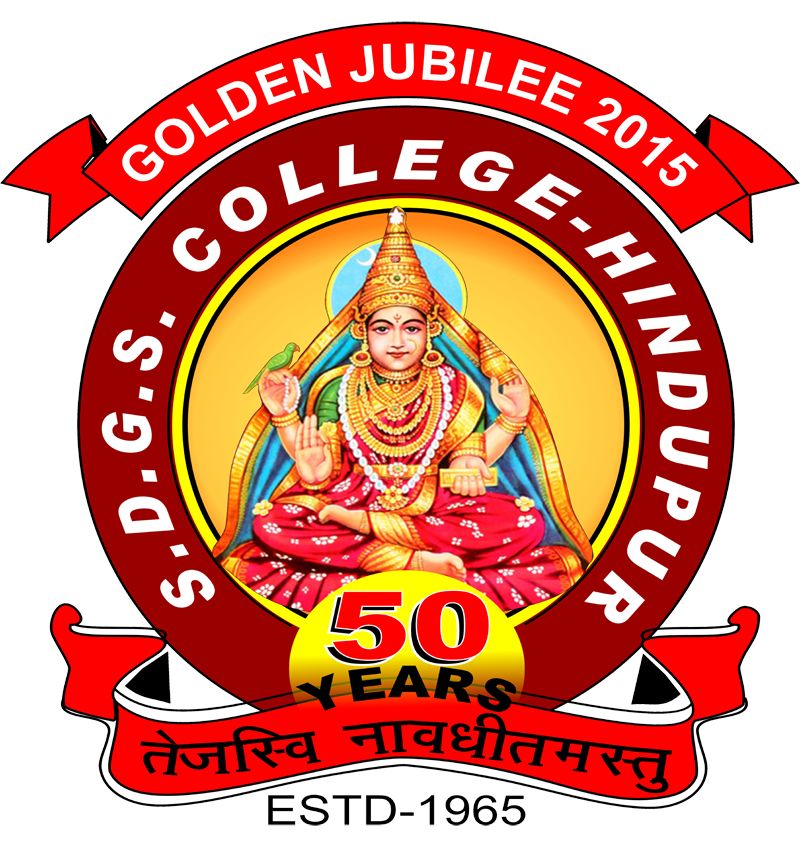
S.D.G.S COLLEGE
HINDUPUR
DEPARTMENT OF POLITICAL SCIENCE
PROFILE OF THE DEPARTMENT
ABOUT THE DEPARTMENT
The department of POLITICAL SCIENCE was established in 1993. Since its inception the department has proved its mettle as a component of this magnificent college. The department has served its purpose very well. Thousands of well qualified students have been trained.. They formed excellent human resources of the nation.
- Name of the Department : Department of POLITICAL SCI
- Year of Establishment : 1993
The Staff who worked for this department:
TEACHING STAFF
| Photo | Name of the Faculty | Designation | Qualification | Specialization | No of Years of Experience | Profile |
| Sri.S SATYA NARAYANA | Associate Professor | MA.,
|
POLITICAL SCIENCE | 18 | Click here | |
| B,ED
|
||||||
S.D.G.S. COLLEGE :: HINDUPUR
DEPARTMENT OF POLITICAL SCIENCE
COURSE OUTCOMES
I Year I Semester Paper – I: Basic Concepts of Political Science
- To understand the nature, scope and importance of Political Science.
- To enhance the knowledge of different approaches of Political Science.
- To gain knowledge about different theories of origin, evolution and development of state.
- To equip with the knowledge of terms like Nationality, Nationalism and Nation.
- To gain the knowledge of different theories and kinds of rights.
- To equip with the sufficient knowledge of different Political concepts like Citizenship, Freedom, Equality and Justice.
I Year II Semester Paper – II: Political Science: Concepts theories and Institutions
- To understand the need of Constitutional law.
- To gain the deep knowledge of theory of separation of powers.
- To understand and analyze the Unitary and Federal form of Government.
- To have throughout knowledge of Democratic form of government.
- To analyze the concepts of judicial review.
II Year III Semester Paper – III: Indian Constitution
- To gain deep knowledge of Indian National Movement at different stages.
- To understand very composition and working principles of Constituent Assembly.
- To thoroughly discuss the features of the Indian Constitution.
- To expose the unitary and federal features of the Indian constitution.
- To understand thoroughly the relations between and union and state government.
II Year IV Semester Paper – IV: Indian Political Process
- To thoroughly understand the process of modernization and its causes in India.
- To gain knowledge of Karl Marx’s perception of transition of society from pre-capitalism to capitalism.
- To understand various theories of caste and it’s ever change role.
- To deep analyze the plight of down trodden community of Indian society
- To know communalistic tensions between two religious of India.
- To understand the nature, types and kinds of Indian party system, election process and different election outcomes.
III Year V Semester Paper – V: Indian Political Thought
- To understand sources of Indian Political thought.
- To gain the knowledge of ideas of Manu regarding the Indian society.
- To deeply understand the Kautilyas perception of the state.
- To understand various reforms designed by Raja Ram Mohan Ray.
- To deep analyze the ideology of Rama Bhais gender theories.
- To learn the realistic ideas of Dadabhai Nouroji regarding poverty.
- To approaches ideas of different national leaders on different issues of India.
III Year V Semester Paper – VI: Western Political Thought
- To understand different concepts likeDemocracy, Justice, Citizenship with help of ideology of Plato and Aristotle.
- To understand the medieval and modern thoughts.
- To gain the knowledge of political ideas of Thomas Hobbes, John Locke and Rousseau.
- To understand the theories of utilitarianism propounded by Jeremy Bentham and ideas of J.S.Mill.
- To understand Hegel’s perception on freedom, civil society and state.
- To thoroughly understand the theories of Karl Marx.
III Year VI Semester Paper – VII: Principles of Public Administration
- To understand the meaning, nature, scope and importance of Public Administration.
- To gain the knowledge of factors which different public and private administration.
- To achieve knowledge Elton Mayo’s Human Relation Theories and decision making theories of Simon.
- To understand concepts like hierarchy, span of control and leadership.
- To gain the knowledge of the structure of organization.
- To understand the different theories of Abraham Maslow
- To appreciate the theories of X and Y by Douglas MC Gegor.
III Year VI Semester Paper – VIII: Comparative constitutionalism U K USA (Cluster Elective)
- To understand the Constitutionalism of UK, USA.
- To analyze comparative study Legislature f UK USA.
- To know the executive structure of UK USA.
- To know about comparative analysis of judiciary of U K,
III Year VI Semester Paper – IX: Human Rights in comparative perspective (Cluster Elective)
- To have an idea on human rights Student is able to understand universal declaration of human
- To know about discrimination based on birth USA,
- To have an idea on Amnesty International.
III Year VI Semester Paper – X: Political Sociology (Cluster Elective)
- To have more idea on political modernization.
- To know about political culture.
- To have an idea on political socialization and agencies of socialization family media education.
- To have knowledge on political.

